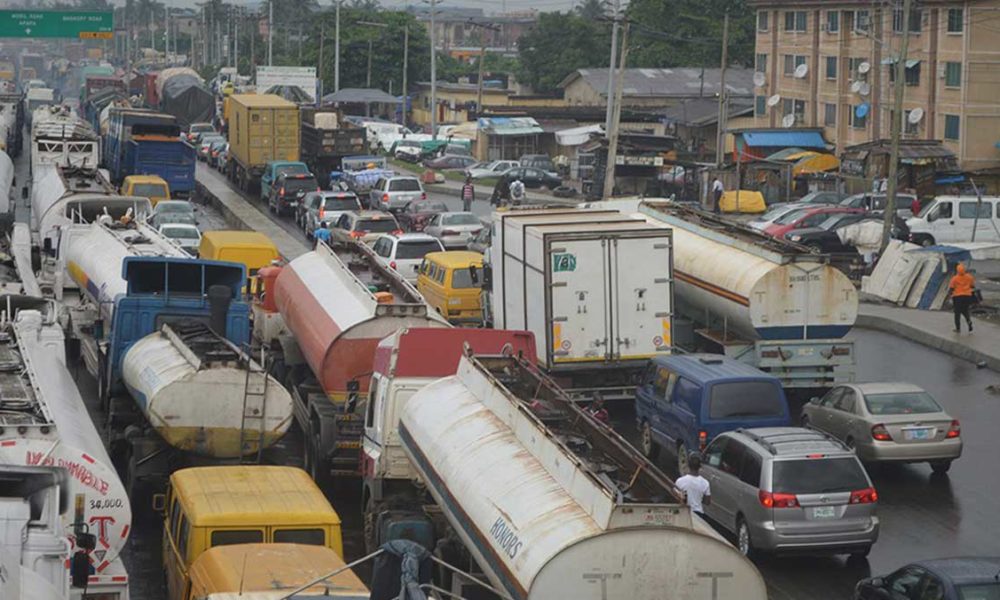Economy
Apapa Gridlock: Transport Operators, Others Lament Rising Cost of Business

- Apapa Gridlock: Transport Operators, Others Lament Rising Cost of Business
The current gridlock resulting from the congestion at the nation’s premier seaports, Tin Can Island and Apapa ports in Lagos, has pushed haulage cost up by about 900 per cent.
Our correspondent gathered from the Secretary, Road Transport Employers Association of Nigeria, Tin Can Island, Haulage Section, Mr Godwin Ikeji, that the cost of loading trucks from Alaba, Lagos, which hitherto was N40,000 had risen to N400,000.
Also lamenting the impact of the situation on exports, the President, Federation of Agricultural Commodities Association of Nigeria, Dr Victor Iyama, told our correspondent that exporters were paying heavily due to the rising cost of transportation and delays in shipment.
He said, “Goods spend two to three weeks to get to the port and when they get there, the shipment is delayed.
“It affects the quality and value of the goods in the international market because products that stay in a container for two weeks are bound to be subjected to moisture and some other damaging conditions.”
Iyama expressed hope that the government would respond to the situation by facilitating air cargo shipment and making funds available to exporters.
While speaking during his state of the economy press briefing on Thursday, the President, Lagos Chamber of Commerce and Industry, Mr Babatunde Ruwase, raised concerns about what he described as unbearable the cost of doing businesses resulting from the Apapa gridlock.
He said, “The gridlock in the Apapa axis of Lagos State has imposed and continues to impose unbearable cost on businesses. The dysfunctional state of the ports and associated logistics for cargo clearing has become a nightmare.
“The cost to business is horrendous. This includes the astronomical increase in haulage cost, increased interest on borrowed funds used for import transaction, high demurrage charges, high insurance premium of vessels coming to Nigeria, high shipping cost, low capacity utilisation due to problem of access to raw materials from port as well as traffic congestion, which has extended to the metropolis.”
He maintained that the situation was a reflection of the several years of neglect of the ports and other infrastructure.
He added, “We appreciate the recent intervention by Vice-President Yemi Osinbajo and the Lagos State Governor, Mr Akinwunmi Ambode. We also note the decision of the Federal Executive Council to award N72bn contract to fix the road leading from Lagos ports to the toll gate. We commend this move and urge that it be followed through to completion.”
He added, “We like to however reiterate that these measures need to be holistic, decisive, consistent and sustainable. The rail system needs to work; the capacity of the ports needs to be expanded; the pipelines for transportation of petroleum products need to be made functional and the tank farms need to be better dispersed.
“We need to urgently restore order and sanity to the Lagos ports and improve access to them. It is regrettable that Lagos port which is the major source of Customs revenue has to suffer the kind of deterioration and challenges that are currently taking place.”
The traffic congestion in the Apapa area has been compounded by ongoing rehabilitation work. The Nigerian Ports Authority, Dangote Group and the Federal Ministry of Power, Works and Housing are jointly handling the rehabilitation work estimated to cost N4.34bn.